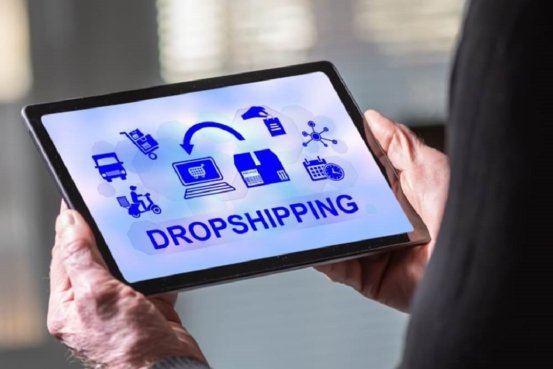The UK’s thriving e-commerce industry is evolving at a remarkable pace, with remote fulfillment becoming an essential driver of growth. To succeed in this highly competitive market, dropshippers must go beyond simply recognizing consumer needs — they must navigate regulatory complexities and adopt advanced automation and AI strategies that streamline operations and enhance decision-making.

Unlocking AI’s Power: Intelligent Product Sourcing Methods
Product sourcing is at the heart of every successful dropshipping venture. Artificial intelligence offers transformative tools to identify market trends, assess supplier dependability, and evaluate product potential — all of which contribute to smarter, more profitable decisions.
1. AI-Driven Trend Analysis and Market Insights
AI’s ability to process vast amounts of data enables dropshippers to detect emerging trends with exceptional accuracy. By examining sales patterns, search behavior, social media sentiment, and even competitor activities, AI can predict which products will capture consumer attention next. Identifying these opportunities early allows sellers to position themselves ahead of competitors, establish a stronger brand presence, and achieve higher profit margins before the market becomes saturated.
AI also assists in uncovering niche segments often overlooked by traditional analysis. By evaluating demographic and behavioral data, entrepreneurs can target products to specific customer groups, increasing engagement and loyalty. For instance, if AI reveals growing demand for sustainable goods among younger shoppers, focusing on eco-conscious products can boost conversions and reinforce brand values.
2. Using AI to Evaluate Supplier Reliability
Selecting dependable suppliers is critical to maintaining customer satisfaction. AI can analyze supplier records, performance data, and customer feedback to highlight trustworthy partners while flagging potential risks such as delayed shipments or negative reviews. This data-driven approach minimizes operational disruptions and helps maintain your store’s credibility.
AI also aids in negotiation by aggregating pricing data from multiple sources to determine fair market rates. It can identify suppliers offering discounts for bulk purchases or long-term contracts, maximizing margins and promoting sustainable partnerships. Strong, reliable supplier relationships are essential for long-term success, and AI simplifies the process of identifying and managing them.
3. AI-Enhanced Market Viability Testing
Before introducing new products, it’s vital to understand their market potential. AI tools simulate real-world market conditions by analyzing variables such as search volume, competition levels, and price fluctuations. These simulations allow you to predict sales performance without committing upfront capital. Techniques like “virtual testing” or “paper trading” enable informed decision-making and reduce financial risk, ensuring only high-potential products make it to your store.
Automating Operations: Streamlining Dropshipping with AI
Automation powered by AI is redefining the efficiency of dropshipping. By integrating AI solutions across your operations, you can minimize manual errors, enhance productivity, and scale your business faster.
1. Smarter Inventory and Fulfillment Management
Managing inventory and ensuring prompt order fulfillment are major challenges in dropshipping. AI streamlines these tasks through:
-
Real-time Inventory Syncing: Automatically updating stock levels between your store and suppliers to prevent overselling.
-
Automated Order Processing: Handling order validation, payment verification, and supplier communication, freeing you to focus on strategy.
-
Predictive Demand Forecasting: Using historical and market data to anticipate future demand, optimizing stock availability while reducing waste.
2. Elevating Customer Support with AI Chatbots
Outstanding customer service drives loyalty and repeat business. AI chatbots offer:
-
24/7 Availability: Ensuring round-the-clock support for global customers.
-
Instant Assistance: Providing immediate answers to order inquiries and product questions.
-
Personalized Engagement: Tailoring responses and recommendations based on individual customer profiles.
-
Workload Reduction: Allowing human agents to focus on complex, high-value interactions.
3. Efficient Supplier Communication and Adaptive Pricing
AI simplifies supplier interactions by automating purchase orders, shipment tracking, and issue resolution. Additionally, dynamic pricing systems analyze competitor activity and market shifts to adjust product prices automatically — maintaining competitiveness while maximizing profits. AI-powered dashboards consolidate these insights, offering real-time visibility into performance metrics and key business indicators.
Building a Scalable AI-Driven Dropshipping Business
Dropshipping presents a unique opportunity for entrepreneurs to establish profitable online ventures without managing physical inventory. In today’s AI-enhanced landscape, those who strategically apply automation and data analytics can scale rapidly and outperform competitors.
1. Adapting to the Modern E-commerce Environment
Social commerce platforms like TikTok and Instagram are transforming product discovery, emphasizing the importance of engaging content and active audience interaction. Simultaneously, the dominance of mobile shopping demands fully optimized, responsive websites that provide seamless browsing and checkout experiences across devices.
2. AI-Powered Customer Engagement
AI chatbots revolutionize customer interactions by providing real-time, personalized support. Beyond handling inquiries, they analyze browsing patterns to make product recommendations, increasing satisfaction and repeat purchases. This personalization not only enhances the user experience but also strengthens customer relationships over time.
3. Data-Driven Optimization and Automation
Data analysis is the backbone of effective dropshipping. AI analytics tools transform raw data into actionable insights, helping you identify high-performing products, evaluate competitors, and refine pricing strategies. These data-driven decisions ensure efficiency and profitability while maintaining flexibility in a fast-moving market.
4. Enhancing Visual Marketing with AI
Compelling product visuals are crucial in online retail. AI tools can generate realistic 3D renders and enhance images to create immersive, high-quality visuals even before physical inventory is available. This not only elevates the store’s visual appeal but also improves discoverability through search optimization, boosting traffic and sales.
References:
https://www.autods.com/blog/dropshipping-tips-strategies/dropshipping-uk/
https://dodropshipping.com/best-dropshipping-suppliers-in-the-uk/
https://sell.amazon.com/learn/what-is-dropshipping
